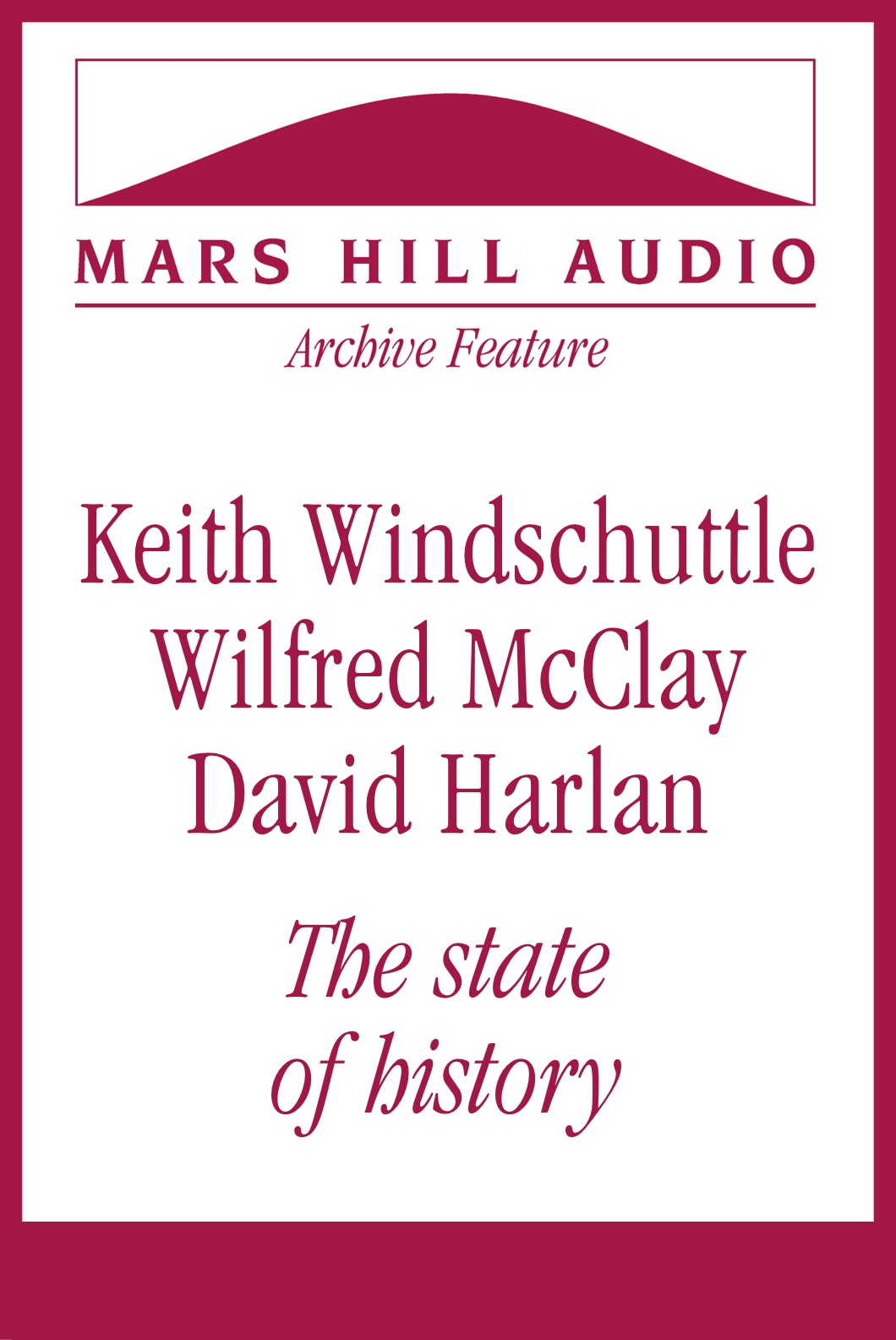originally published 5/1/1998
This Archive Feature presents three interviews with historians from Volume 31 (1998) of the Journal. First, Keith Windschuttle, the author of The Killing of History, speaks about the change that has happened in historical studies. Second, historian Wilfred McClay gives a brief response to the previous interview, discussing the structural reasons that encourage new academic trends. These include the negation of the work of preceding historical study and the pressure put on historians by their peers to innovate regardless of the factual basis. Finally, David Harlan, the author of The Degradation of American History (University of Chicago Press, 1997), describes the role of the historian as resuscitating texts and finding an interpretation through which they can speak to the present.
33 minutes
PREVIEW
The player for the full version of this Feature is only available to current members. If you have an active membership, log in here. If you’d like to become a member — with access to all our audio programs — sign up here.
Related reading and listening
- The life of the city in poetry — FROM VOL. 1 Ken Myers talks with W. H. Auden’s biographer and literary executor, Edward Mendelson, about political and social themes in Auden’s poetry. (7 minutes)
- The theological significance of current events — FROM VOL. 65 George Marsden discusses how Jonathan Edwards (1703–1758) understood world history and the American experience. (14 minutes)
- Countering American apathy toward history — FROM VOL. 124 Historian John Fea discusses how American and Protestant individualism continues to influence our orientation toward the past. (22 minutes)
- Virgil and purposeful history — In this lecture from June 2019, classical educator Louis Markos examines Book II of The Aeneid to argue that Virgil had an eschatological view of history. (68 minutes)
- Only a dying civilization neglects its dead — Historian Dermot Quinn discusses the work of fellow historian Christopher Dawson (1889–1970). (15 minutes)
- Christopher Dawson: Chronicler of Christendom’s Rise and Fall — Dermot Quinn discusses historian Christopher Dawson’s meta-historical perspective and his wisdom about what makes cultures healthy or unhealthy. (54 minutes)
- From democracy to bureaucracy — Historian John Lukacs on the challenges of living at the End of an Age
- Ideas and historical consequences — Historian John Lukacs (1924–2019) discusses the relationship between institutions and character, popular sentiment versus public opinion, the distinction between patriotism and nationalism, and the very nature of studying history. (36 minutes)
- The historian’s communal role as storyteller — FROM VOL. 127 Historian Christopher Shannon discusses how American academic historical writing presents a grand narrative of progressivism, which it defends by subscribing to an orthodoxy of objective Reason. (21 minutes)
- The past as presence, not souvenir — Historian Christopher Lasch on the importance of recognizing our dependence on the past
- “How deep the problems go” — FROM VOL. 103Eric Miller discusses the late historian and social critic Christopher Lasch’s intense commitment to understand the logic of American cultural confusion. (20 minutes)
- The de(con)struction of the humanities (and of truth) — Historian Gertrude Himmelfarb on the skeptical tendencies of the postmodern academy
- Christ, the key to human meaning — Gil Bailie on how the coming of Christ affirmed the intelligibility of human history (and why the abandonment of Christ invites unreason)
- Mars Hill Audio Journal, Volume 159 — FEATURED GUESTS:
Kirk Farney, Andrew Willard Jones, James L. Nolan, Jr., Andrew Kaethler, Peter Ramey, and Kathryn Wehr
- Before Church and State — Andrew Willard Jones challenges some of the conventional paradigms of thinking about political order, arguing that modern assumptions of the relationship between Church and state color how we understand history. (54 minutes
- The consequential witness of St. Patrick — Thomas Cahill describes how the least likely saviors of Western heritage, the Irish, copied all of classical and Christian literature while barbarians rampaged through the rest of Europe. (16 minutes)
- Analyzing the current indictment of Christopher Columbus — Robert Royal offers thoughtful listeners an alternative to the ignorant and heated indictment of Christopher Columbus that has become fashionable in recent months. (22 minutes)
- John Lukacs, R.I.P. — Historian John Lukacs discusses the vocation of studying history and how it is more a way of knowing human experience than it is a science. (23 minutes)
- The burden of creating meaning — George Parkin Grant on the insatiability of the modern will
- Word becomes flesh, Reality becomes fact — Henri de Lubac on the Incarnation and history
- Mars Hill Audio Journal, Volume 124 — FEATURED GUESTS:
John Fea, Robert F. Rea, John C. Pinheiro, R. J. Snell, Duncan G. Stroik, Kate Tamarkin, and Fiona Hughes
- Mars Hill Audio Journal, Volume 114 — FEATURED GUESTS: Susan Cain, Brad S. Gregory, David Sehat, Augustine Thompson, O.P., Gerald R. McDermott, and Marilyn Chandler McEntyre
- Mars Hill Audio Journal, Volume 87 — FEATURED GUESTS: John Witte, Jr., Steven Keillor, Philip Bess, Scott Cairns, and Anthony Esolen
- Mars Hill Audio Journal, Volume 84 — FEATURED GUESTS: Harry L. Lewis, Nicholas Wolterstorff, Brendan Sweetman, James Turner Johnson, David Martin, and Edward Ericson, Jr.
- Mars Hill Audio Journal, Volume 82 — FEATURED GUESTS: Stephen Gardner, Elisabeth Lasch-Quinn, Wilfred McClay, David Wells, James K. A. Smith, and Robert Littlejohn
- Mars Hill Audio Journal, Volume 75 — FEATURED GUESTS: Mark Malvasi, John Lukacs, Steve Talbott, Christian Smith, Eugene Peterson, and Rolland Hein
- Mars Hill Audio Journal, Volume 72 — FEATURED GUESTS: John Polkinghorne, Francesca Aran Murphy, James Hitchcock, Wilfred McClay, Philip McFarland, and David Hackett Fischer
- Mars Hill Audio Journal, Volume 53 — FEATURED GUESTS: Lawrence Adams, Dana Gioia, Elmer M. Colyer, R. A. Herrera, Margaret Visser, and Joseph Pearce
- Mars Hill Audio Journal, Volume 20 — FEATURED GUESTS: Elizabeth Fox-Genovese, Robert D. Richardson, Jr., Roger Lundin, Wilfred McClay, Andrew A. Tadie, Robert Jenson, Ted Prescott, and Ted Libbey
